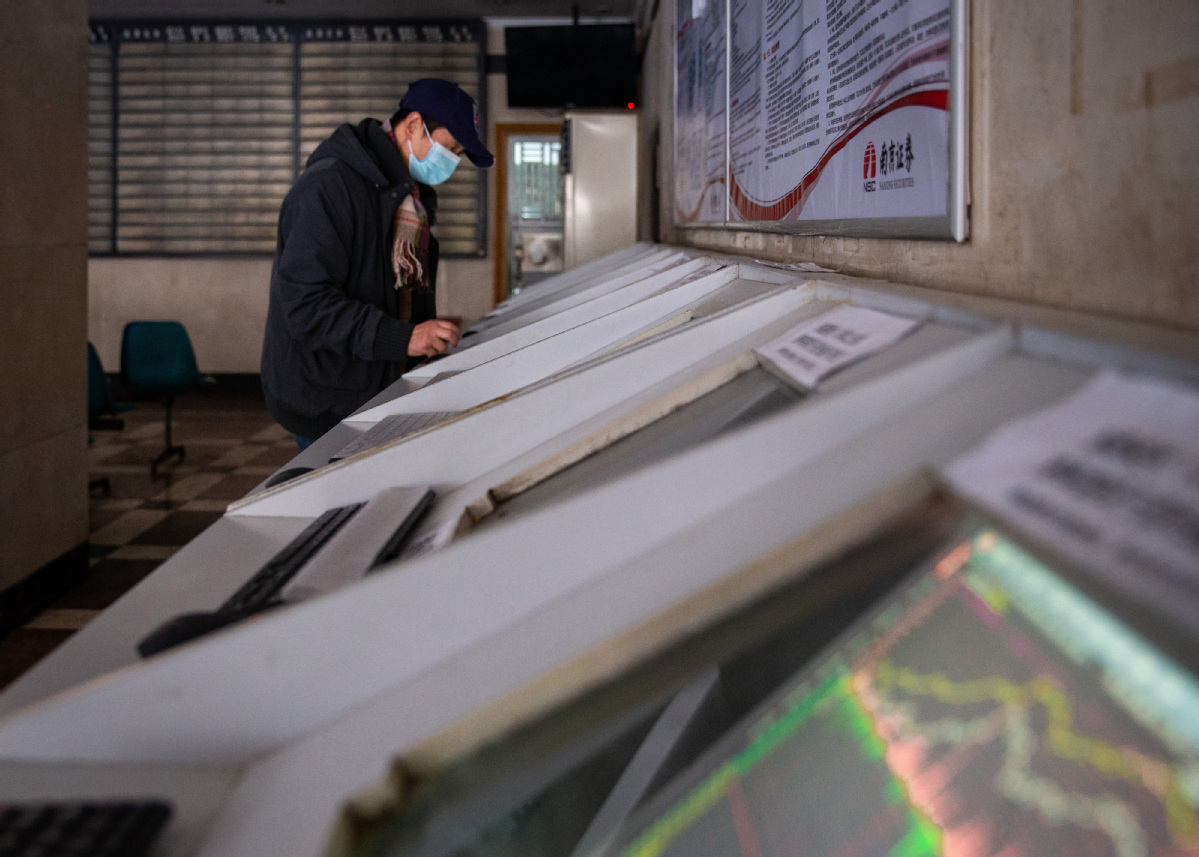ETFs hit new high on Shanghai Stock Exchange


On the other hand, there is still much room for growth in general. Data from social and trading platform Xueqiu, or Snowball Finance, showed that there were about 371 ETFs in China last year, which was only 15 percent of the total number reported in the United States in 2020.
Given the ratio that ETFs take in the mutual funds market, the gap between China and the US means that the Chinese ETF industry will likely expand by four times in the near future, said Xueqiu's CEO Li Nan.
Although the underlying assets of ETFs in the Chinese market have covered stocks, bonds, commodities and currencies, innovation is still needed for fixed income ETFs, active ETFs, foreign exchange ETFs and structured products, said Ye of the Shanghai Stock Exchange.
Experiences from the US showed that actively managed products have witnessed net capital outflow since 2008, with the total outflow reaching $1.7 trillion in 10 years' time, said Zhao Yonggang, research and development director of China Securities Index Co Ltd. The trend shows that a growing number of investors have shown preference for index products to allocate assets or manage wealth, he said.
Zhao said lower trading expenses represent one major reason for mature investors' attraction to index investing. Meanwhile, the more transparent ways that indexes are compiled help investors better manage investment behavior and lower risk, he added.
China International Fund Management Co Ltd and Xueqiu released the 2020 China ETF Investors Insight report at the end of last year after polling a total of 13,113 candidates. As the report discovers, Chinese ETF investors are relatively better educated as 20 percent hold a master's degree, which is twice the number as ordinary investors. ETF investors are also more seasoned as 90 percent have previous investment experience. The average amount devoted to ETF investments topped over 1 million yuan, which was much higher than that for actively managed funds.
Hu Di, index and quantitative investment director at China International Fund Management, said that more investors will choose passive index products as the A-share market further opens up and long-term capital such as social security, insurance and foreign investment flows in. The market will become increasingly effective and ETFs will witness rapid development in China.
"As Chinese household assets are differently structured, ETFs will become increasingly important tools for investors in China," Hu said.




































